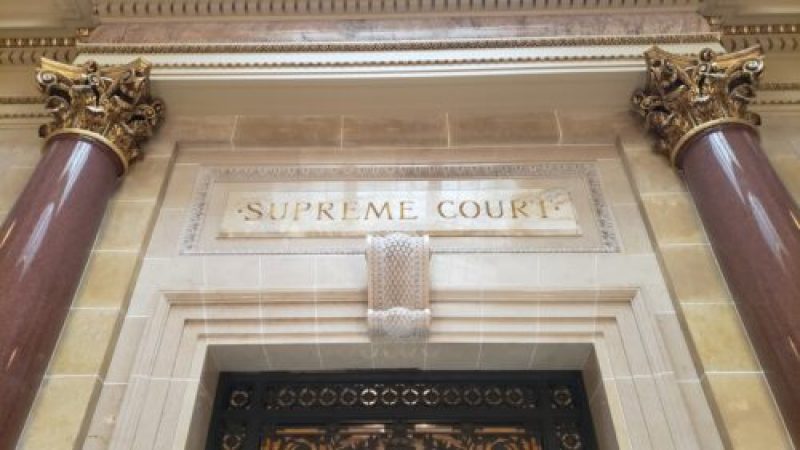An attorney representing parents challenging the Madison Metropolitan School District policy on transgender students argued they should be allowed to file their suit anonymously to avoid likely harassment and reprisals.
But a lawyer for the school district countered granting that anonymity would hamper MMSD’s ability to defend the suit, including knowing whether the parents had the power to file it in the first place.
MMSD attorney Sarah Zylstra during oral arguments before state Supreme Court Tuesday argued justices should consider other options to balance the desire of the plaintiffs to be shielded from possible harassment and her ability to properly defend her client. She noted not knowing the parents’ identity could undercut possible defenses for MMSD in the case.
That includes, for example, whether the parents’ child has turned 18, which would mean the student is now an adult legally or if the parents’ rights have been terminated. She argued instead the parents’ names should be filed with the court under seal so the attorneys on both sides know their identities, but the public doesn’t.
>> WisPolitics is now on the State Affairs network. Get custom keyword notifications, bill tracking and all WisPolitics content. Get the app or access via desktop.
At one point conservative Justice Rebecca Bradley pointed to the leak of a U.S. Supreme Court draft opinion to overturn Roe v. Wade to question whether there are adequate safeguards to ensure the MMSD attorneys, their paralegals and secretaries and others involved in the case wouldn’t leak the parents’ identity. She also noted Wisconsin Family Action, which filed an amicus brief in the MMSD case, recently saw its office attacked.
“Are you suggesting this court should not be concerned about protecting the identity of the petitioner in this case under such threats of violence?” Bradley asked.
Zylstra answered there was nothing to suggest the MMSD legal team wouldn’t honor an order that the names couldn’t be leaked. She said only allowing the attorneys to know their identities would hamper work on the case.
“It’s an unfair intrusion into my practice of law without a factual basis,” she said.
The MMSD policy on students who are transitioning says the district strives to include families in the process of gender self-determination. Still, staff won’t disclose students’ decisions to change their name or gender at school unless the child gives permission to do so.
Luke Berg, of the conservative Wisconsin Institute for Law & Liberty, filed the lawsuit on behalf of the parents. He argued the case involves constitutional questions that aren’t contingent upon the specifics of the family involved.
The factors that support granting the anonymity request include that minor plaintiffs are involved, there’s a serious risk for retaliation, the case involves a sensitive topic and the identity of the plaintiffs is irrelevant to the case, Berg said.
The parents in 2020 challenged the policy, which had been put in place in 2018. A Dane County judge partly denied their request to remain anonymous, requiring the parents to disclose their identities to the court and attorneys for the school district. But their identities remain under seal to protect from public disclosure. To proceed, the parents would have to file an amended complaint stating their identities, and an appeals court upheld the Dane County judge’s order.
Berg jousted with liberal justices Rebecca Dallet and Jill Karofsky at several points in Tuesday’s oral arguments. That includes during a portion of his remarks in which he said there is a “grand experiment of treating little boys like little girls.” That drew a rebuke from both justices, who asked him to stick to the issues in the case.
Berg continued, “Parents have a right to decide whether they want their child to be part of the experiment or not.”



